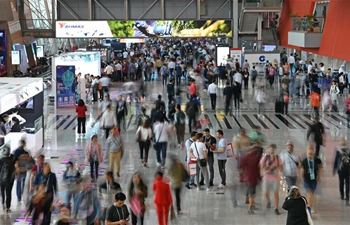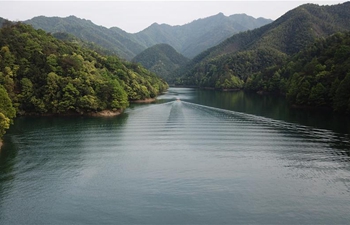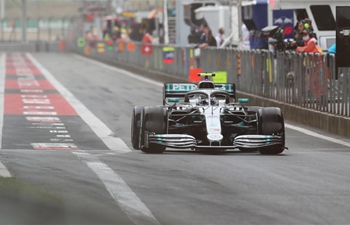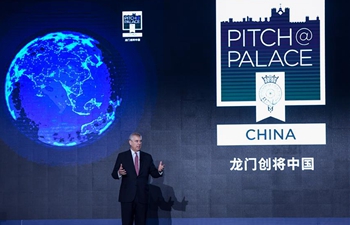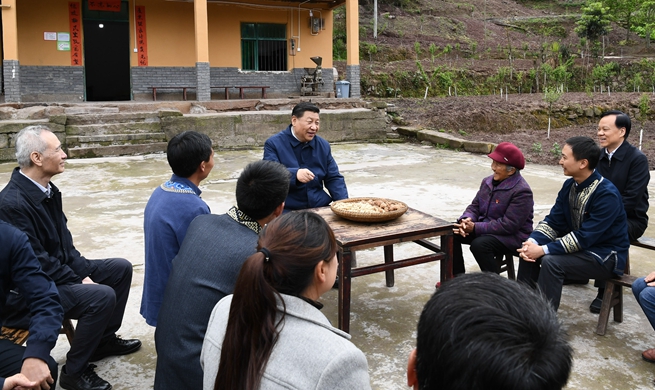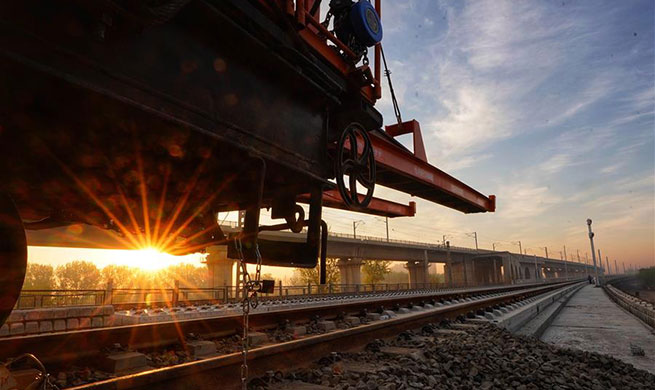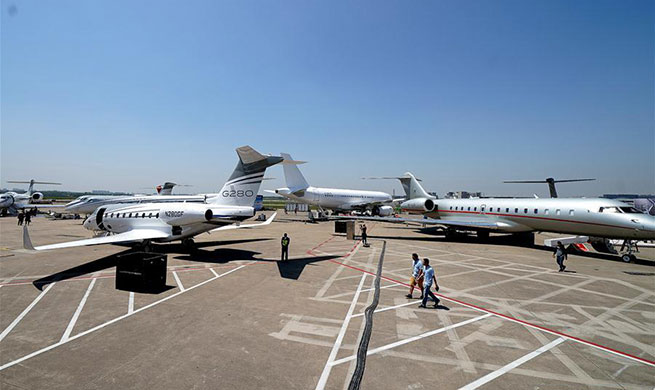JUBA, April 15 (Xinhua) -- The political transition in South Sudan's northern neighbor Sudan will not affect the ongoing peace implementation process in Juba, despite the recent military ouster of former President Omar al-Bashir following street protests in Khartoum, experts said on Monday.
Bashir played central role in reviving the fragile peace process, under the auspices of the regional bloc Inter-Governmental Authority on Development (IGAD) which eventually made him one of the key guarantors alongside Ugandan President Yoweri Museveni of the revitalized peace deal signed in September 2018 in Ethiopia.
The peace deal this time looks to be largely holding amid doubts by the international community and lack of enough financial support due to the fact that past agreements backed by regional and international powers collapsed.
Mawien Makol Ariik, South Sudan foreign ministry spokesman, told Xinhua that the peace process will remain on steady course despite political changes in Khartoum.
"It will not affect the peace agreement. Sudan and South Sudan are two countries with cordial relations because they were one country before. The military council is capable of establishing a government and stability," he said in Juba.
Makol's view was collaborated by Zachariah Diing Akol from the Juba-based Suddi Institute think tank, who observed that Bashir's departure won't change the course of the peace process since the members of the military council led by Lt. Gen Abdel-Fattah al-Burhan will maintain the same focus on South Sudan.
"The departure of Bashir from power shouldn't create worries or fear from Juba, the people who have taken over like Gen. Fattah is someone who was in the army and should know the national interest of Sudan," Akol said.
He disclosed that the relations between Sudan and South Sudan were not based on personalities but on mutual interests of the two countries, and that oil was key resource which benefits both countries.
Akol said that Bashir's ouster will not create a power vacuum because the ruling military council is well conversant with South Sudan's political elites.
"Bashir fought against us during the second Sudanese civil war and some of these generals that are in charge now were fighting. So you cannot say there is a (power) vacuum because Bashir has gone," added Akol.
Jacob Dut Chol, professor of politics at University of Juba told Xinhua that Bashir's political exit will somehow impact the peace process because none of the members of the military council have the same political clout and leverage over the warring parties in South Sudan.
"We are yet to see we are not yet certain of the change in leadership. Surely there will be some impact on the South Sudan peace agreement given that Bashir was having a personal commitment. So the Military Council will for now concentrate much on maintaining stability in Sudan than South Sudan's peace deal," he said.
"Bashir is somebody experienced in politics and he knows South Sudan better than the generals in the military council," added Chol.
He disclosed that the focus will now turn to Museveni, Ahmed Abiy the Ethiopian prime minister, and Eritrean leader Isaias Afewerki to push the peace process.
"These same leaders can still call the shots. We hope that Museveni will take up the leadership in order to guarantee success of the peace process," said Chol.
He also criticized the recent remarks by Riek Machar, leader of the Sudan People's Liberation Army-In Opposition (SPLA-IO), that there was need for additional six months to implement the peace agreement since the parties are far behind schedule on key issues to meet the May 12 deadline for formation of transitional unity government (TGoNU).
"If you wait for the reunification of the army before forming the unity government it may never take place. You cannot unify now the army when there is no unity government in place," said Chol.
He revealed that the revitalized peace agreement was not something that Sudan came up with on its own as it is part of the (IGAD) region's agenda.
James Okuk, political analyst, also hinted that nothing will change as the ruling generals in Khartoum are cadres of the system left behind by Bashir.
"What is happening now is an internal Sudanese political row that has no effect on the relations between the two countries," said Okuk.
"The regime is intact only the face of the leadership has changed. It is still the Bashir cadres in charge they will continue with whatever they have been doing on foreign relations and top of this list is South Sudan because of oil resource," he added.
